
Professor Allan Young
Professor of Psychological Medicine
Research interests
- Neuroscience
- Psychiatry
- Psychology
Biography
Professor Allan Young MB, ChB, MPhil, PhD, FRCP (Edin.), FRCPC, FRCPsych is based at the Institute of Psychiatry, Psychology and Neuroscience at King’s College London.
Professor Allan Young joined King’s in 2013 and holds the Chair of Mood Disorders and is Director of the Centre for Affective Disorders.
He has held academic appointments at Oxford University; Newcastle University (latterly holding the Chair of General Psychiatry at Newcastle), University of British Columbia in Vancouver, Canada, where he held the Leading Edge Endowment Fund Endowed Chair in Research in the Department of Psychiatry and was also the Director of the Institute of Mental Health and Imperial College London, where he held the Chair of Psychiatry and was Director of the Centre for Mental Health.
Professor Young’s research interests focus on the cause and treatments for severe psychiatric illnesses, particularly mood disorders. He has received research grant funding from the UK Medical Research Council, the Wellcome Trust, the Stanley Medical Research Institute, the Canadian Institutes for Heath Research (CIHR), the National Institutes of Health (USA), and numerous other funding agencies. He has published over 400 peer-reviewed publications and a number of books about psychopharmacology and affective disorders including Bipolar Disorders: Basic Mechanisms and Therapeutic Implications (2nd Ed) with J.C. Soares, and Practical Management of Bipolar Disorder with I.N. Ferrier and E. Michalak (Cambridge University Press, 2010).
Professor Young was recently ranked as one of the world's leading scientific minds in the field of Psychiatry and Psychology, according to the 2014 Thomson Reuters Highly Cited Researchers list. In all of science, a total of over 3,000 researchers worldwide earned this distinction and the academics listed rank among the top 1% most cited for their subject field and year of publication, a mark of exceptional impact. (see: http://www.kcl.ac.uk/iop/news/records/2014/July/Three-IoP-academics-ranked-as-worlds-leading-scientific-minds.aspx)
Professor Young is a member of several editorial boards and is a member of numerous professional and scientific societies. He is immediate Past-President of the International Society for Affective Disorders, President of the British Association of Psychopharmacology and the immediate past Chair of the Special Committee for Psychopharmacology of the Royal College of Psychiatrists.
Research Interests
- Affective Disorders
- Psychopharmacology
Expertise and Public Engagement
Professor Young is a member of several editorial boards and is a member of numerous professional and scientific societies. He is immediate Past-President of the International Society for Affective Disorders, President of the British Association of Psychopharmacology and the immediate past Chair of the Special Committee for Psychopharmacology of the Royal College of Psychiatrists.
Prof Young is also a Trustee of the patient and family charity Bipolar UK. The national charity dedicated to supporting individuals with the much misunderstood and devastating condition of bipolar, their families and carers. Prof Young is a trustee of The Drug Safety Research Unit (DSRU), an independent academic unit internationally respected for its work in Pharmacovigilance, Pharmacoepidemiology, Risk Management and Training Services for over 30 years. http://www.dsru.org/.
Research

Centre for Affective Disorders
The Centre for Affective Disorders focuses on mood and anxiety disorders, common disorders which cause great suffering for many people.

Optimising response to lithium treatment through personalized evaluation of individuals with bipolar I disorder: The R-Link initiative
The R-Link study aims to find out which factors predict future response to lithium treatment in the long-term.
Project status: Ongoing

A 6-week Randomised, Double-Blind, Placebo-Controlled, Multicentre Study to Evaluate the Efficacy of Lurasidone Adjunctive Therapy in Improving Cognitive Functioning in Euthymic Bipolar Disorder Patients (ELICE-BD)
Comparing the difference in cognitive functioning in people treated with Lurasidone vs. placebo, to observe if the active treatment has any influence.
Project status: Ongoing

The RHAPSODY Study
Clinical Feasibility of Speech Phenotyping for Remote Assessment of Neurodegenerative and Psychiatric disorders (RHAPSODY)
Project status: Ongoing
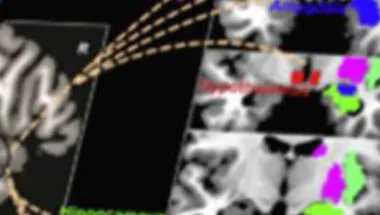
Neurocognitive signatures predicting risk of recurrent depression (NESPRED) study
After recovering from depression, it is currently difficult to advise on the risk of future recurring episodes. The aim of this study is to find better ways to predict the risk of future depressive episodes for a particular person


kEtamine for the treatment of DEpression with anorexia Nervosa (EDEN)
The EDEN trial aims to investigate the effect of ketamine in alleviating depression with a diagnosis of persisting anorexia and treatment-resistant depression
Project status: Ongoing

Psychoactive Trials Group
Psychoactive Trials Group
News
Quetiapine augmentation found to be more clinically and cost-effective for treatment-resistant depression compared to lithium
New research has found that quetiapine augmentation – a treatment for depression in people that have't fully responded to antidepressants – is both more...
At home brain stimulation for depression found to be safe and effective
A device that delivers direct stimulation to the brain is a safe and effective means of treating depression at home.

£1.45million awarded for EDEN Project, a trial exploring ketamine for depression with anorexia nervosa
King’s researchers have been awarded the funds the MRC Developmental Pathway Funding Scheme to run a randomised controlled feasibility trial of oral ketamine...

New psychedelics and mental health research centre officially opens
The Centre for Mental Health Research and Innovation officially opened on 15 November 2023 to accelerate research into psychedelics and develop new models of...

New tool to streamline prescribing of antidepressants
A new web tool has been designed by researchers at King's College London and the University of Oxfordto simplify the prescription of antidepressant and...

Lord O'Shaughnessy visits King's College London and the NIHR King's Clinical Research Facility
Lord O’Shaughnessy, Former Health Minister and Senior Partner at consultancy firm Newmarket Strategy visited IoPPN and the NIHR King's Clinical Research...
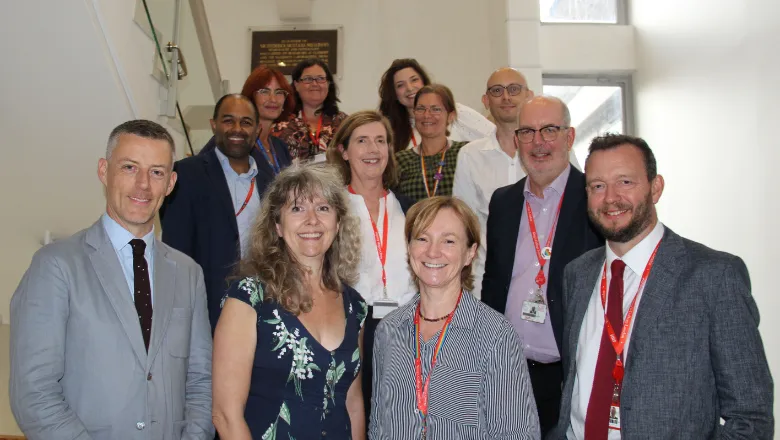
The finger of blame in depression and the brain
Professor Roland Zahn delivered the eighth inaugural lecture of the 2022/23 IoPPN Inaugural Lecture Series, entitled 'The finger of blame in depression and...

A response to “The serotonin theory of depression: a systematic umbrella review of the evidence”
A new Comment led by researchers at the Institute of Psychiatry, Psychology & Neuroscience (IoPPN), King’s College London critiques the umbrella review “The...
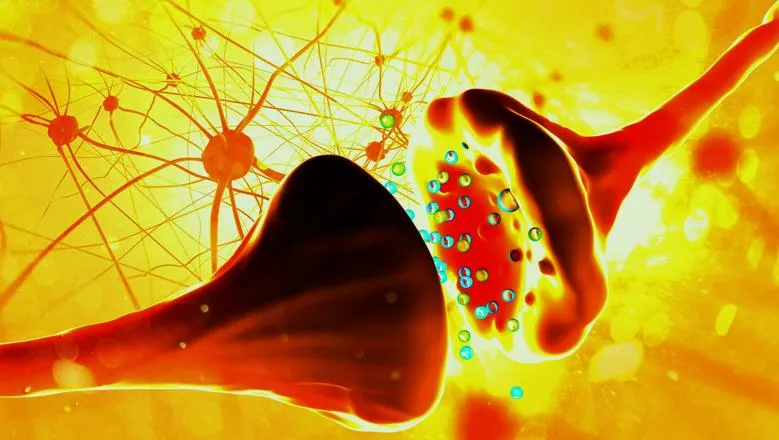
Largest trial to date shows that psilocybin reduces depression symptoms
A new multicentre clinical trial led by COMPASS Pathways across 22 international sites, including the Institute of Psychiatry, Psychology & Neuroscience...

People with depression “stagnating” in primary care says top UK Psychiatrist
A new study from the Institute of Psychiatry, Psychology & Neuroscience (IoPPN) at King’s College London and the European Brain Council has found “substantial...

Events
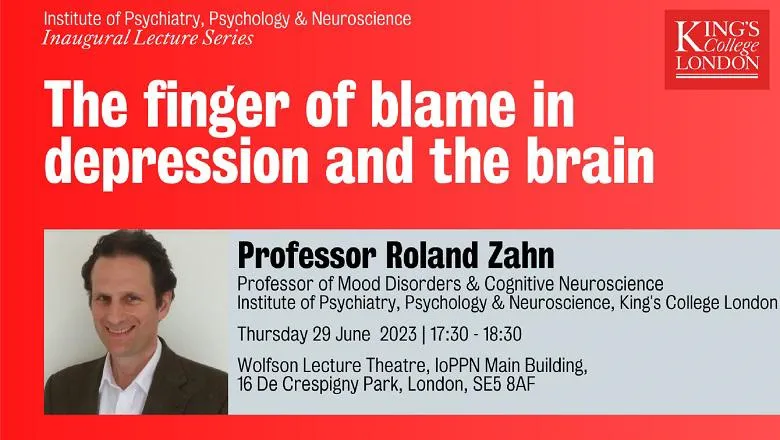
Professor Roland Zahn - Inaugural Lecture
Join us in celebrating Professor Roland Zahn's inaugural lecture on 'The finger of blame in depression and the brain''
Please note: this event has passed.

Adding Years to Our Lives and Life to Our Years
Longevity Science Foundation and Aging Research at King's are running a joint event to highlight the potential of psychedelic applications for mental health...
Please note: this event has passed.

Professor Gráinne McAlonan - Inaugural Lecture
Join us in celebrating Professor Gráinne McAlonan's inaugural lecture on 'Translating Neuroscience – across species, across development and into clinic''
Please note: this event has passed.
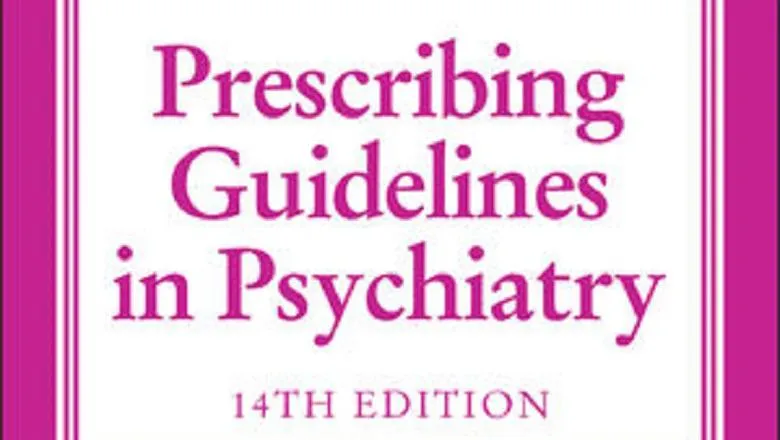
Maudsley Prescribing Guidelines International Conference - Clinical Psychopharmacology in the time of COVID
The Maudsley Prescribing Guidelines International conference presents the latest evidence-based research and developments in clinical psychopharmacology.
Please note: this event has passed.

Depression in the 21st Century – Causes, Symptoms and Management (5pm GMT)
Join Professor Allan Young, from the world-leading Institute of Psychiatry, Psychology & Neuroscience, King's College London, as he explores the very latest...
Please note: this event has passed.

Depression in the 21st Century – Causes, Symptoms and Management (12pm GMT)
Join Professor Allan Young, from the world-leading Institute of Psychiatry, Psychology & Neuroscience, King's College London, as he explores the very latest...
Please note: this event has passed.
Research

Centre for Affective Disorders
The Centre for Affective Disorders focuses on mood and anxiety disorders, common disorders which cause great suffering for many people.

Optimising response to lithium treatment through personalized evaluation of individuals with bipolar I disorder: The R-Link initiative
The R-Link study aims to find out which factors predict future response to lithium treatment in the long-term.
Project status: Ongoing

A 6-week Randomised, Double-Blind, Placebo-Controlled, Multicentre Study to Evaluate the Efficacy of Lurasidone Adjunctive Therapy in Improving Cognitive Functioning in Euthymic Bipolar Disorder Patients (ELICE-BD)
Comparing the difference in cognitive functioning in people treated with Lurasidone vs. placebo, to observe if the active treatment has any influence.
Project status: Ongoing

The RHAPSODY Study
Clinical Feasibility of Speech Phenotyping for Remote Assessment of Neurodegenerative and Psychiatric disorders (RHAPSODY)
Project status: Ongoing

Neurocognitive signatures predicting risk of recurrent depression (NESPRED) study
After recovering from depression, it is currently difficult to advise on the risk of future recurring episodes. The aim of this study is to find better ways to predict the risk of future depressive episodes for a particular person


kEtamine for the treatment of DEpression with anorexia Nervosa (EDEN)
The EDEN trial aims to investigate the effect of ketamine in alleviating depression with a diagnosis of persisting anorexia and treatment-resistant depression
Project status: Ongoing

Psychoactive Trials Group
Psychoactive Trials Group
News
Quetiapine augmentation found to be more clinically and cost-effective for treatment-resistant depression compared to lithium
New research has found that quetiapine augmentation – a treatment for depression in people that have't fully responded to antidepressants – is both more...
At home brain stimulation for depression found to be safe and effective
A device that delivers direct stimulation to the brain is a safe and effective means of treating depression at home.

£1.45million awarded for EDEN Project, a trial exploring ketamine for depression with anorexia nervosa
King’s researchers have been awarded the funds the MRC Developmental Pathway Funding Scheme to run a randomised controlled feasibility trial of oral ketamine...

New psychedelics and mental health research centre officially opens
The Centre for Mental Health Research and Innovation officially opened on 15 November 2023 to accelerate research into psychedelics and develop new models of...

New tool to streamline prescribing of antidepressants
A new web tool has been designed by researchers at King's College London and the University of Oxfordto simplify the prescription of antidepressant and...

Lord O'Shaughnessy visits King's College London and the NIHR King's Clinical Research Facility
Lord O’Shaughnessy, Former Health Minister and Senior Partner at consultancy firm Newmarket Strategy visited IoPPN and the NIHR King's Clinical Research...

The finger of blame in depression and the brain
Professor Roland Zahn delivered the eighth inaugural lecture of the 2022/23 IoPPN Inaugural Lecture Series, entitled 'The finger of blame in depression and...

A response to “The serotonin theory of depression: a systematic umbrella review of the evidence”
A new Comment led by researchers at the Institute of Psychiatry, Psychology & Neuroscience (IoPPN), King’s College London critiques the umbrella review “The...

Largest trial to date shows that psilocybin reduces depression symptoms
A new multicentre clinical trial led by COMPASS Pathways across 22 international sites, including the Institute of Psychiatry, Psychology & Neuroscience...

People with depression “stagnating” in primary care says top UK Psychiatrist
A new study from the Institute of Psychiatry, Psychology & Neuroscience (IoPPN) at King’s College London and the European Brain Council has found “substantial...

Events

Professor Roland Zahn - Inaugural Lecture
Join us in celebrating Professor Roland Zahn's inaugural lecture on 'The finger of blame in depression and the brain''
Please note: this event has passed.

Adding Years to Our Lives and Life to Our Years
Longevity Science Foundation and Aging Research at King's are running a joint event to highlight the potential of psychedelic applications for mental health...
Please note: this event has passed.

Professor Gráinne McAlonan - Inaugural Lecture
Join us in celebrating Professor Gráinne McAlonan's inaugural lecture on 'Translating Neuroscience – across species, across development and into clinic''
Please note: this event has passed.

Maudsley Prescribing Guidelines International Conference - Clinical Psychopharmacology in the time of COVID
The Maudsley Prescribing Guidelines International conference presents the latest evidence-based research and developments in clinical psychopharmacology.
Please note: this event has passed.

Depression in the 21st Century – Causes, Symptoms and Management (5pm GMT)
Join Professor Allan Young, from the world-leading Institute of Psychiatry, Psychology & Neuroscience, King's College London, as he explores the very latest...
Please note: this event has passed.

Depression in the 21st Century – Causes, Symptoms and Management (12pm GMT)
Join Professor Allan Young, from the world-leading Institute of Psychiatry, Psychology & Neuroscience, King's College London, as he explores the very latest...
Please note: this event has passed.
